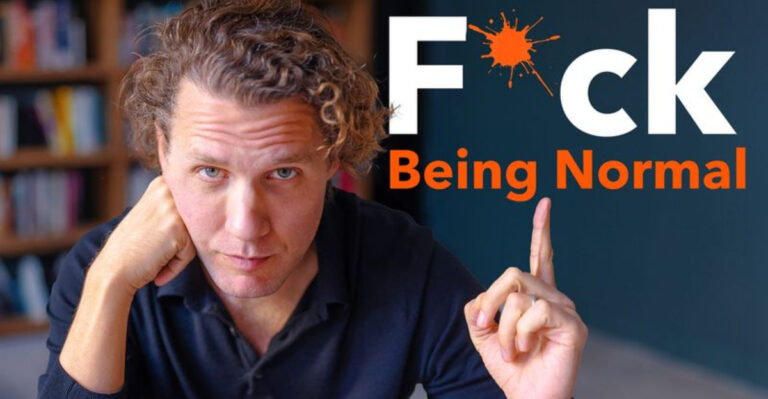Sintomas, causas e tratamento dos problemas da mãe nas mulheres
We’ve all dealt with at least one guy with an Oedipus complex. That’s right, I’m talking about men who remain little mama’s boys apesar da sua idade e que esperam que a sua companheira continue a ser a sua mãe.
But what about mommy issues in women? Is that even a thing? Why isn’t this topic addressed as much as the Oedipus complex?
Quais são as causas? Quais são os sinais de problemas mamários? Mais importante ainda, pode ser curado, e como?
If you read on, you’ll get all the answers you need and more!
O que são problemas com a mamã?

Os problemas da mamã são como uma relação pouco saudável que teve com a sua mãe em criança influenciou negativamente a sua vida adulta. Se tem problemas com a mãe, isso significa que a relação que tinha com a sua mãe teve um impacto negativo nas suas relações românticas e na sua relação com os seus filhos.
Uma mulher pode ter problemas com a mãe?
Yes, women can have mommy issues. Mommy and daddy issues are in no way connected to the child’s sex. Actually, it’s a common misconception that females struggle more with daddy issues due to relações pai-filha pouco saudáveis enquanto as feridas da mãe são reservadas apenas aos machos.
O que causa os problemas da mãe nas mulheres?

Eis as causas mais comuns de uma mulher desenvolver uma ferida materna:
1. Maus tratos na infância
O primeiro fator que desencadeia o desenvolvimento de problemas com a mãe e com o pai é, sem dúvida, a maus tratos sofridos em criança. But let’s be clear about something here: I’m not only talking about physical or sexual abuse here.
There are other types of abuse, such as emotional abuse as well. The worst thing about emotional abuse is that it’s incredibly hard to identify, and victims don’t even recognize it as abuse.
Whatever abuse you’ve been through, it has left consequences on your mental health – one way or another. And if your mother was the primary abuser or the enabler of the abuse (in the way that she didn’t do anything to prevent it), you’ll likely develop mommy issues later in life.
2. Mother’s neglect
Mother’s neglect is another cause of mommy issues. The problem with neglect is that people assume a neglecting parent is just one who doesn’t provide food, shelter, and schooling for their children.
Embora este seja um tratamento horrível, existem outros padrões de comportamento que podem ser classificados como negligência. Por exemplo, se ela didn’t provide protection ou apoio emocional na sua primeira infância, ela negligenciou-o definitivamente.
We’re talking about the most important figure in an innocent person’s life.
If you didn’t feel like your mother loved you enough, who will? If you didn’t feel like you could go to her if you needed advice or just a hug, don’t you think an experience like that would shape you into the person you are today?
3. Uma mãe pegajosa
However, being completely the opposite isn’t right either. Your child should be the center of your world, right? Well, the thing is that your mom took this concept too literally.
Moms who are overly clingy to their own children aren’t doing them a favor either. We’re talking about a woman who didn’t have a life outside of yours.
Your birth gave her meaning, and all of her love and attention was directed towards you. This might sound amazing at first, but trust, it’s not a healthy relationship.
This woman’s only role was that of your mother. You replaced her partner, her female friends, and her entire family.
And whether you like to admit it or not, this kind of behavior suffocated you, especially in your teen years. She didn’t allow you to be independent and never taught you the importance of setting boundaries.
4. Mãe demasiado permissiva
How about a doting mother? Well, that’s not good either.
Yes, your mom should love you, no matter what you do. But that doesn’t mean that she must love everything you do. Do you see the difference?
Uma mãe demasiado permissiva faz-nos pensar que somos donos do mundo. Tens o direito de tratar as pessoas como te apetece e podes fazer o que quiseres sem quaisquer consequências.
Quando eras criança, nunca foste disciplinado. Nunca foi posto de castigo e nunca sofreu as consequências do seu comportamento.
On the contrary, you were permitted anything. You had unlimited finances, and your mother never told you “no.” And look how that turned out!
Yes, she did this out of love. But at the same time, her behavior enabled bad actions, and that’s never okay.
And what happens when the real world hits you? That’s right, you finally understand that it’s not how things work.
5. Mãe demasiado protetora
Finally, we arrived at overly protective moms. I’m sure you know the type.
Todos os pais do mundo morrem de medo que algo de mau possa acontecer aos seus filhos. Ninguém gosta de ver os seus filhos cair e bater-se, quanto mais algo mais.
But healthy parents know that they can’t protect their children from every bad thing in this world. So they let them learn by letting them go.
However, your mother was different. She kept you in her arms for as long as she could – literally and figuratively.
Esta mulher tinha medo de viver e transferiu os seus medos irracionais para si.
Unlike the child from the previous passage, you were never allowed to do anything. You couldn’t have a boyfriend, weren’t allowed to travel with your friends, she didn’t let you go out…
A lista é interminável, mas o que interessa é que este tipo de comportamento também deixou cicatrizes em si. E, claro, desenvolveu uma relação pouco saudável com a sua mãe.
6. Papéis errados
Your mom shouldn’t be your best friend. And you shouldn’t play the role of her mother either.
Porque é que vos estou a dizer isto? Bem, muitas mães tóxicas invertem os papéis com os seus filhos, pelo que os filhos acabam por tomar conta delas.
Ou talvez a tua mãe quisesse ser fixe, por isso agiu sempre como tua melhor amiga em vez de ser rigorosa quando era apropriado. É óbvio que esta mulher não tinha amigas, por isso planeou transformar-te numa.
Embora estas relações entre mãe e filha possam ser divertidas, no fim de contas, isso significa que nunca teve a sua mãe a desempenhar o papel dela enquanto crescia (apesar de a sua mãe estar fisicamente presente na sua vida).
Eu sei o que devem estar a pensar neste momento: todos os tipos de mães e todos os estilos de educação podem causar problemas de maternidade. Parece que nada é suficientemente bom. Então, como é que uma mãe se deve comportar para evitar causar uma ferida materna nos seus próprios filhos?
Well, the emphasis here is on the word “overly.” There is no balance in being overprotective, overpermissive, or overclingy.
Ver também: 11 sinais de homens com problemas com a mãe (+ 7 maneiras de lidar com eles)
Quais são os sinais de problemas mamários nas mulheres?

Uma relação complicada com a sua mãe resulta em outras relações complicadas na sua vida adulta, e é exatamente assim:
1. Comportamento pegajoso
You tend to be overly needy in all of your personal relationships, especially romantic relationships. It’s more than clear that you crave the attention, love, and validation you didn’t get from your mother when it should have been given to you.
You live in constant fear that your partner will leave you when you least expect it. You’re unaware of it, but you have some serious questões de abandono.
Ou talvez penses que ser pegajoso is the only way to show love? After all, that’s what your mother taught you.
If your boyfriend doesn’t give you his undivided attention 24/7, you assume that he’s stopped loving you.
The truth is that you know nothing about healthy boundaries. You’re jealous and possessive, and the worst part is that you don’t even see it.
2. Estilo de vinculação pouco saudável
De acordo com a teoria da vinculação, o seu estilo de fixação depende da relação que tinha com o seu principal cuidador. Em termos simples, tem problemas de vinculação devido à relação tensa que tem com a sua mãe.
Por exemplo, se tiver um estilo de vinculação evitante, it’s because your mother neglected you as a child. The same goes for insecure attachment – you didn’t get enough attention from your own mother and father.
Por outro lado, se tiver um estilo de vinculação seguro, isso significa que teve uma relação de amor e carinho com o seu principal prestador de cuidados.
O que é que isto tem a ver com as suas outras relações pessoais? Bem, tu transferes isto estilo de fixação para as suas relações românticas, para as relações com os seus amigos e para tudo o resto na sua vida adulta.
3. Comportamento maternal nas relações
Motherly behavior in other relationships is quite common for mommy issues in women. You didn’t have a healthy mother figure in your life, and you think that you’ll compensate for this by becoming a mother figure to your romantic partner or friends.
This is especially true if you are an older sibling. You were responsible for the caretaking of your entire family. You had to worry about your little brothers and sisters’ well-being, and you transferred these behavior patterns to your adult relationships.
Para além disso, sente falta de uma figura materna. Por isso, assume que todos os outros também sentem. Para si, esta é a expressão máxima do amor: criar o seu par romântico ou o seu melhor amigo.
4. Baixa autoestima

You weren’t given enough validation in your early childhood. You were never told that you were beautiful or smart.
Mas o mais importante é que a tua mãe não te mostrou que eras suficientemente bom. A dura verdade is that she didn’t love you how you wanted to be loved.
So now you think that you’re unworthy of anyone’s love. If the person who gave birth to you didn’t see you as valuable enough and if she couldn’t get herself to love and respect you, what can you expect from the rest of the world?
Tudo isto causou grandes inseguranças e baixa autoestima you don’t know how to deal with properly. You have a distorted sense of self, and at the end of the day, you don’t know how to love yourself.
5. Idealizar outras relações
I hate to break it to you, but you’re a good candidate for bombardeamento de amor. You’re so desperate to receive the love you never got that you fall for other people’s lies without any hesitation.
Quantas vezes pensaste que ele era o tal? Quantas relações românticas imaginou que acabariam em casamento?
Olha, não há nada de errado em fantasiar. Mas o teu problema é que idealizas as tuas relações pessoais.
Every time a new person enters your life, you assume that you’ve finally found someone who will heal your inner child and fill your void.
Those expectations put rose-tinted glasses over your eyes. You fail to see someone’s flaws, and you are blind to the red flags.
Por isso, naturalmente, acabamos sempre por ficar ainda mais desiludidos!
6. Dependência emocional
You don’t know what healthy boundaries mean. You’re unfamiliar with the term independence.
On the contrary, you’re emocionalmente dependente em toda a gente que amamos. E isso cria relações pouco saudáveis.
You can’t breathe without your partner. You think that your life would be pointless without them, and consequently, you develop relationship anxiety.
This can be the result of many factors, but they’re all related to your mãe tóxica. Se ela era demasiado pegajosa, mostrava sinais de dependência emocional, e ensinavam-lhe que isso era amor.
Por outro lado, se ela o negligenciou, passou toda a sua infância a desejar o seu amor. E isso também pode causar este tipo de dependência.
Whatever the reason is, the bottom line is the same: you can never allow your happiness to depend on someone else. And that’s exactly what you’ve been doing all along.
7. Críticas excessivas
Mommy issues in women are connected with nagging, grumbling, and fault-finding. If you’re one of those moms or wives who keep on criticizing her entire family, this is why you act that way.
Desde que te lembras, nada do que fizeste foi suficientemente bom. Gritaram-lhe e abusaram de si de várias formas e adoptou esses padrões de comportamento como normais.
Apesar de, no fundo, saberes que este comportamento é tóxico, continuas a agir da mesma forma.
Why? Well, it’s actually pretty simple: you don’t know better.
Here’s a little secret: people don’t like this about you. They don’t care if you’re doing it for their own good – they feel like they’re under constant attack, and nobody feels comfortable that way.
8. Indisponibilidade emocional
We’ve already discussed overly clingy and emotionally dependent females with mother wounds.
Mas e quanto a indisponibilidade emocional? Pode ser um dos sinais de problemas com a mamã nas mulheres? Sem dúvida, sim.
You’re simply scared. A relação mais importante que teve quando era criança acabou por não ser bem sucedida.
Então, o que se pode esperar dos melhores amigos, parceiros românticos e outros membros da família?
With time, you’ve developed a defense mechanism. You’ve decided that the only way to keep yourself safe is to keep everyone else out.
You don’t let people see the true you. You’ve built thick and high walls around your heart to protect it.
And you think that you’re doing just fine like that. Well, you’re not. You’re actually missing out on a lot.
9. Questões de confiança
Problemas de confiança are also very common with females who suffer from mommy issues. It’s actually the same as with love.
A pessoa em quem mais devias ter confiado (e o pior é que confiaste mesmo) traiu-te. Ela apunhalou-te pelas costas e tratou-te como se fosses o seu pior inimigo.
So how could you ever get yourself to trust anyone again? If the woman who brought you into this world deceived you, why wouldn’t some random guy you met a few months ago?
Bem, deixem-me contar-vos um pequeno segredo: nem toda a gente é como a vossa mãe.
Don’t get me wrong – this doesn’t mean that you should live life recklessly. It doesn’t mean that you should trust everyone who comes your way.
Mas, por favor, dêem a algumas pessoas o benefício da dúvida. Eles podem surpreender-vos!
Como podem ser tratados os problemas da mãe nas mulheres?

Os problemas da mamã podem ser curados? É possível quebrar o ciclo e ser um tipo diferente de mãe para os seus filhos? Sim, e sim. E isto é exatamente como o fazer!
1. Identificar o problema
Adquirir consciência de si próprio é o primeiro passo para resolver qualquer problema, incluindo este. Por isso, por muito que te custe, tens de voltar à tua infância e repensá-la na tua cabeça.
First and foremost, you have to accept that you have had a troubled relationship with your mother forever. This doesn’t mean that you love her any less or that you accuse her of anything right away – you’re just acknowledging that fact.
Which of your mother’s behaviors hurt you the most? How did she impact your life right now? Why was your relationship unhealthy? What could have made it better?
Dig deep inside of you to find the answers because you can’t move on with your healing journey until you do.
2. A força para perdoar
O perdão é crucial para qualquer progresso! Isto significa que deves perdoar a tua mãe, mesmo que ela tenha sido a tua agressora?
Well, you’re the only one who can answer that question. However, letting go of resentment and hatred will take a huge burden off your chest – I can promise you that.
I won’t lie to you: it would be great to forgive your mother, especially if she didn’t mean to hurt you (disclaimer: I’m not talking about abusive mothers here). Isto não é uma desculpa para o seu comportamento tóxico, mas acreditem em mim, ela fez o melhor que pôde.
She loved you the way she considered best. It is likely that she was a victim of toxic parents herself. But unlike you, she wasn’t strong enough to break the cycle.
Mais importante ainda, por favor perdoar-se a si próprio. Remember: you’re the victim here, and a little child can never be blamed for his or her parents’ actions.
3. Curar a criança interior
Finally, it’s time to heal your inner child. Dê a si próprio o que mais desejava quando era apenas uma criança.
I don’t care if we’re talking about that toy you never got or more important things such as emotional support or validation. Sometimes, you have to engage in self-parenting practices, and that’s perfectly fine as well.
The point is to do whatever makes you happy. Engage in self-care and learn how to love yourself – that’s the key to everything.
Para terminar:

I’ll be honest with you: mommy issues in women are as common as the Oedipus complex. And both conditions should not be taken lightly.
However, as long as you’re here, it means you’re perfectly aware that you have a problem. By just accepting that, you’re one step closer to healing.
Good luck, you’ve got this!






